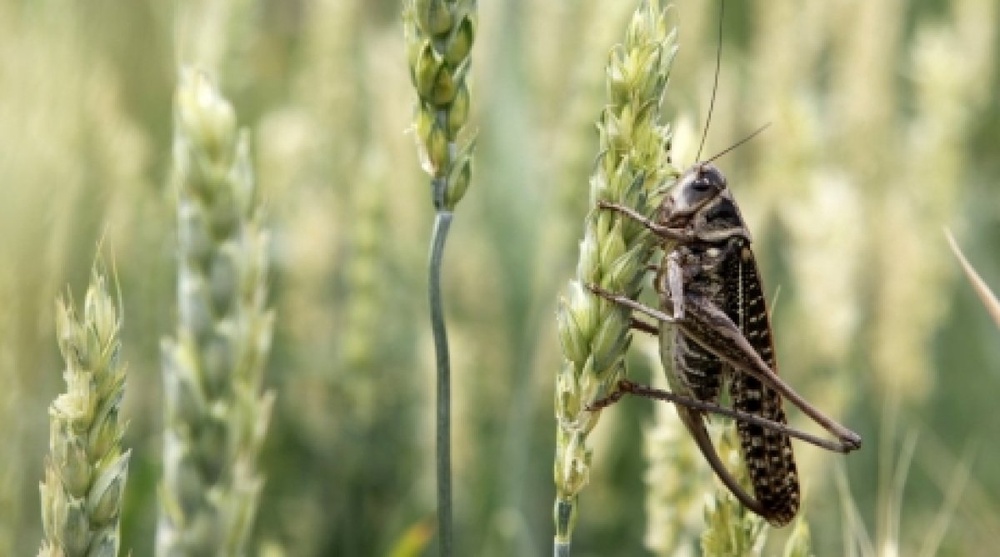
Locusts may damage the 2014 harvest in Kazakhstan, Kazakh-Zerno writes. Aktobe grain farmers forecast a difficult year in 2014 because of the locusts outbreak. According to them, the locusts have already laid enough eggs to destroy the next summer's harvest completely. Zhossaly Agro farm will start harvesting summer wheat in 10-14 days. The plan is to collect 8-12 hundredweights from one hectare "provided that the locusts won't cause even more problems. This year thanks to the new equipment we managed to treat our fields but the locusts still destroyed around 5-6 hectares of crops. There was just too many of them,” the farmers said. Local farmers saw that the locust left unusually large quantities of eggs in 2012 and started treating their fields in the beginning of spring this year. The farmers forecast that 2014 “will be even worse”. “There are many locusts this year and they laid even more eggs. There is nothing we can do now. They just sit on the wheat and slowly eat our bread. Then they just take off and leave when we start working. Of course, they are less active when it rains. But the future bread depends on how the insects behave right now,” the farmers said. Around 1 million hectares of lands were treated with pesticides in the oblast. The decision was made to analyze results of this year's work on countering locusts, check on the territories, make conclusions and brace for countering the insects in 2014.





Locusts may damage the 2014 harvest in Kazakhstan, Kazakh-Zerno writes.
Aktobe grain farmers forecast a difficult year in 2014 because of the locusts outbreak. According to them, the locusts have already laid enough eggs to destroy the next summer's harvest completely.
Zhossaly Agro farm will start harvesting summer wheat in 10-14 days. The plan is to collect 8-12 hundredweights from one hectare "provided that the locusts won't cause even more problems. This year thanks to the new equipment we managed to treat our fields but the locusts still destroyed around 5-6 hectares of crops. There was just too many of them,” the farmers said.
Local farmers saw that the locust left unusually large quantities of eggs in 2012 and started treating their fields in the beginning of spring this year. The farmers forecast that 2014 “will be even worse”. “There are many locusts this year and they laid even more eggs. There is nothing we can do now. They just sit on the wheat and slowly eat our bread. Then they just take off and leave when we start working. Of course, they are less active when it rains. But the future bread depends on how the insects behave right now,” the farmers said.
Around 1 million hectares of lands were treated with pesticides in the oblast. The decision was made to analyze results of this year's work on countering locusts, check on the territories, make conclusions and brace for countering the insects in 2014.

 +7 (777) 001 44 99
+7 (777) 001 44 99



 Қазақша
Қазақша Русский
Русский English
English














































